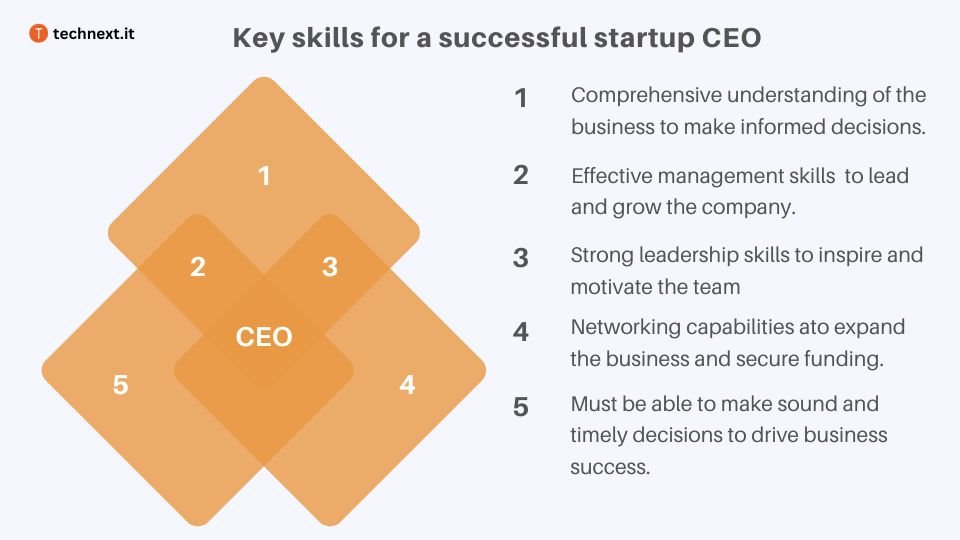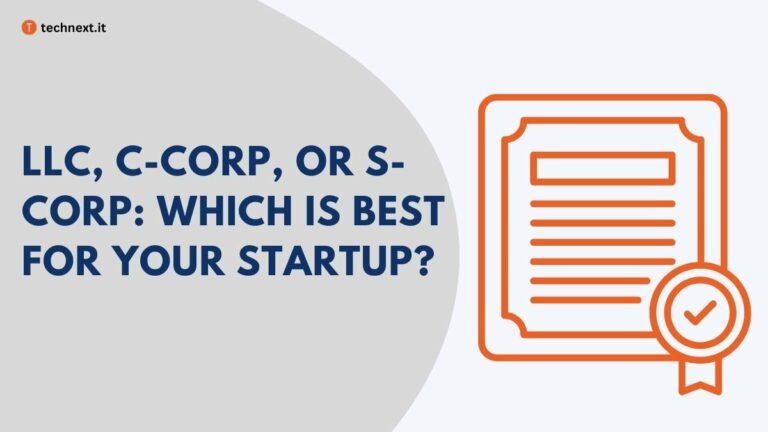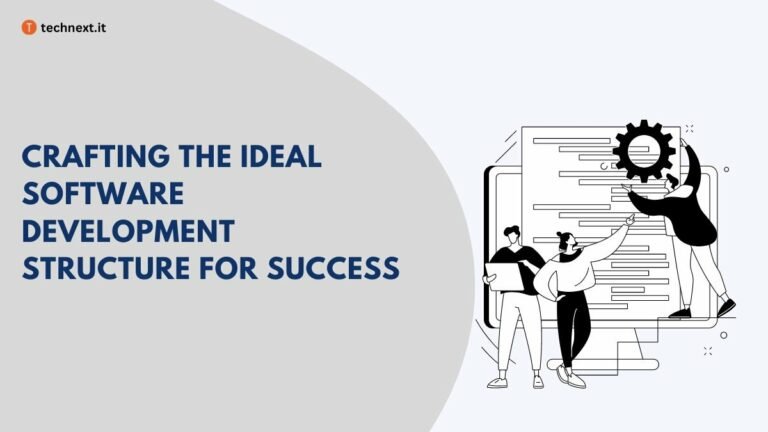What’re the Roles of a CEO in a Startup at Different Stages?
As CEO, you are responsible for the success of your startup. But what needs to be done to guarantee that success? Learn the skills you need to square up and the roles you need to play as a CEO at different stages to ensure sustainable growth.

The roles of a CEO in a startup are crucial to the success and growth of the company. At different stages of a startup’s development, the responsibilities of the CEO may shift and evolve. In this article, we’ll explore the role of a CEO in a startup at different stages and how they can drive the success and growth of the company.
Key Expertise a Startup CEO Should Have
According to Elon Musk, Founder and CEO of SpaceX. “I think ordinary people can choose to be extraordinary.”
This statement shows that even a regular man with the right startup plan can become a successful CEO, but doing so requires a lot of talent and patience. If not, why do just 10% of startups succeed financially?
If a competent CEO wants to succeed, they must be prepared every day. A CEO must possess a wide range of skills, including the capacity for sound judgment, team leadership, the ability to forge alliances, and the capacity for strategic vision, and many more.

1. Proper Understanding of Business
A CEO should have a thorough understanding of their business and its operations. To set up a sustainable startup, business leaders should conduct market research, develop business strategies and goals, determine the company’s legal structure, and many more. Thus they need to have proper knowledge of these things. This will help to ensure the viability of the business and prepare the company for successful operations.
2. Management Skill
A CEO is a company’s leader and is accountable for the startup’s performance. He is responsible for ensuring that the company runs smoothly and that the employees are happy and engaged while providing the best output. If a CEO manages his company skillfully, it will ensure the smooth operations of his business. To ensure all these, startup CEOs need to have good management skills.
3. Leadership Skill
A CEO should have leadership qualities since it inspires, motivates, and set an example for his employees. In a startup, effective leadership can strengthen and promote teamwork, promt a sense of larger good, motivate and inspire trust, or provide purpose and direction. It’s also essential for a CEO to look within to see how he/she can bring out the best in people who look to him for guidance and inspiration.
On the other hand, a capable leader should have a clear vision of understanding what he expects from others and how to get everyone working in the same direction.
4. Networking Capabilities
A CEO’s extensive network can bring benefits for both the CEO and the startup. It takes a lot of time, determination, and effort to create a successful startup, so it’s better to have a network of friends and business partners that can help a CEO expand the business fast and stay motivated. Suppose a CEO has a stellar reputation within his or her network. In that case, he or she enjoys the benefit of having a solid group of connections from which he or she may obtain several starter advantages.
5. Decision Making
Life is full of decision-making, with the average person making thousands of decisions daily. CEOs must naturally earn more than the average person because of the nature of their position. The CEO is a key decision-maker who shapes the course of the business. While some CEOs run large organizations with boards, others maintain total control over their businesses and are the only ones who must answer them. A CEO must make sound judgments and grow her team’s decision-making abilities, facilitate decisions that support the corporate strategy, and build buy-in for final decisions.
Roles of a CEO in a Startup at Different Stages
1. Roles of a Startup CEO at the Initial Stage
The CEO’s first goal in the initial stage is to create a fantastic product or service and discover a small group of individuals who adore and eagerly use it. At this point, a CEO must be involved in product development and converting his/her vision into reality. Creating products entails monitoring, communicating with users, coding, designing, and so on.
The other imperative for an initial CEO is to conserve money to extend the time to iterate and improve the product. According to Ali Rowghani of Y combinator, the CEO’s first goal should be “First Creation is a Product, Second Creation is a Company. “But most of the time, startups fail because they don’t focus on creating a product that users love enough to abandon existing alternatives.
If a CEO desires to succeed and enter the growth stage, he must be successful in the initial step. He must have a distinct vision from his opponents. In addition, he must take a few daring actions that others cannot. Only his singular vision can provide the organization with a perspective. This is how a CEO scales up his startup in the initial phase of business development.
The startup will enter the growth phase when all the above have been accomplished.
2. Roles of a Startup CEO at the Growth Stage
In the startup’s growth stage, the CEO’s primary responsibility is to build the company. The company he makes is his second creation and will be his lasting legacy as a founder. The CEO becomes the “Company-Builder-in-Chief” during the growth stage.
When his company expands, he eventually needs around 20 to 30 employees. And when the CEO recruits more people, he will need to handle his staff more delicately, as it will require more coordination among the employees. An excellent option in a growth stage is to hire a team lead because a CEO can’t handle everything alone, and he has a limited amount of time. He should have designated team leaders for various tasks in this regard so everyone can work in sync. Basically, in the growth stage, a CEO passes operational & development responsibilities to team leaders so he/she can focus more on the financial aspects of the startup.
Initially, It can be pretty challenging for most founders to stop doing things he/she used to do in the early phase of the startup, such as coding, creating product specifications, and talking to clients daily. Likewise, It’s challenging to stop responding to support tickets, performing all product demonstrations, and debugging the most recent release. But, a CEO must cease performing all these things to save time for essential activities that only CEOs can complete.
That delegating will give the CEO more time to concentrate on growing his business and leading the startup to enter into the mature stage.
3. Roles of a CEO in a Startup at the Mature Stage
You have successfully navigated the first two steps if you reach the mature level.
By this time, your product has become a household name in the industry, and you aim to become a market leader. Generally, startups become economically independent as they have a sizeable user base and start generating profit from their operations.
In the mature stage of a startup, the CEO’s role is to ensure the company’s continued success and growth. This may involve maintaining and expanding the company’s market share, pursuing new business opportunities, and adapting to changes in the market and industry.
The CEO may also need to focus on maintaining strong relationships with key stakeholders, such as employees, investors, and customers, and on ensuring that the company is meeting its financial and operational goals. In addition, the CEO may need to make difficult decisions, such as downsizing or restructuring the company, in order to keep the business on track.
Another key responsibility of the CEO is to develop an exit strategy and lead the startup to enter the share market. These may include:
- Developing a plan for going public, which may involve seeking the advice of legal, financial, and other experts.
- Working with the company’s board of directors and other key stakeholders to determine the best time and method for going public.
- Preparing the company’s financial and operational records for public scrutiny, which may involve conducting audits and implementing new reporting and governance procedures.
- Communicating with investors and the public to build support for the company’s initial public offering (IPO) and to ensure that the IPO is successful.
- Managing the company’s finances and operations after the IPO, including working with the company’s new investors to ensure that the company’s growth and success continue.
Footnote
In conclusion, the role of a CEO in a startup varies at different stages of the company’s growth and development. In the initial stage, the CEO’s primary goal is to create a product or service that users love and to conserve resources to extend the time to iterate and improve the product. In the growth stage, the CEO becomes the “Company-Builder-in-Chief” and focuses on building the company and recruiting and managing a team of employees. In the mature stage, the CEO’s role is to ensure the company’s continued success and growth and to develop an exit strategy to take the company public or sell it to another company. Throughout all stages, the CEO must provide strong leadership and direction for the company and make key decisions to ensure its success.
I hope you now clearly understand the Roles of a CEO in a StartUp at Different Stages. Each stage comes with unique challenges, and a CEO must face and solve each one. The following articles will help you solve those problems and get you to your desired destination.
A Complete Guide to the Ideal Tech Startup Team Structure
A Complete Guide to Ideal Startup Marketing Team Structure
How to Split Equity in a Startup Fairly in 2022
From Idea to IPO: The 5 Stages of Funding for Startups
How to Hire Developers for a Startup
A Complete Guide to the Ideal Tech Startup Team Structure
In-house Development vs Outsourcing: Guideline for Founders
Best of Luck!






